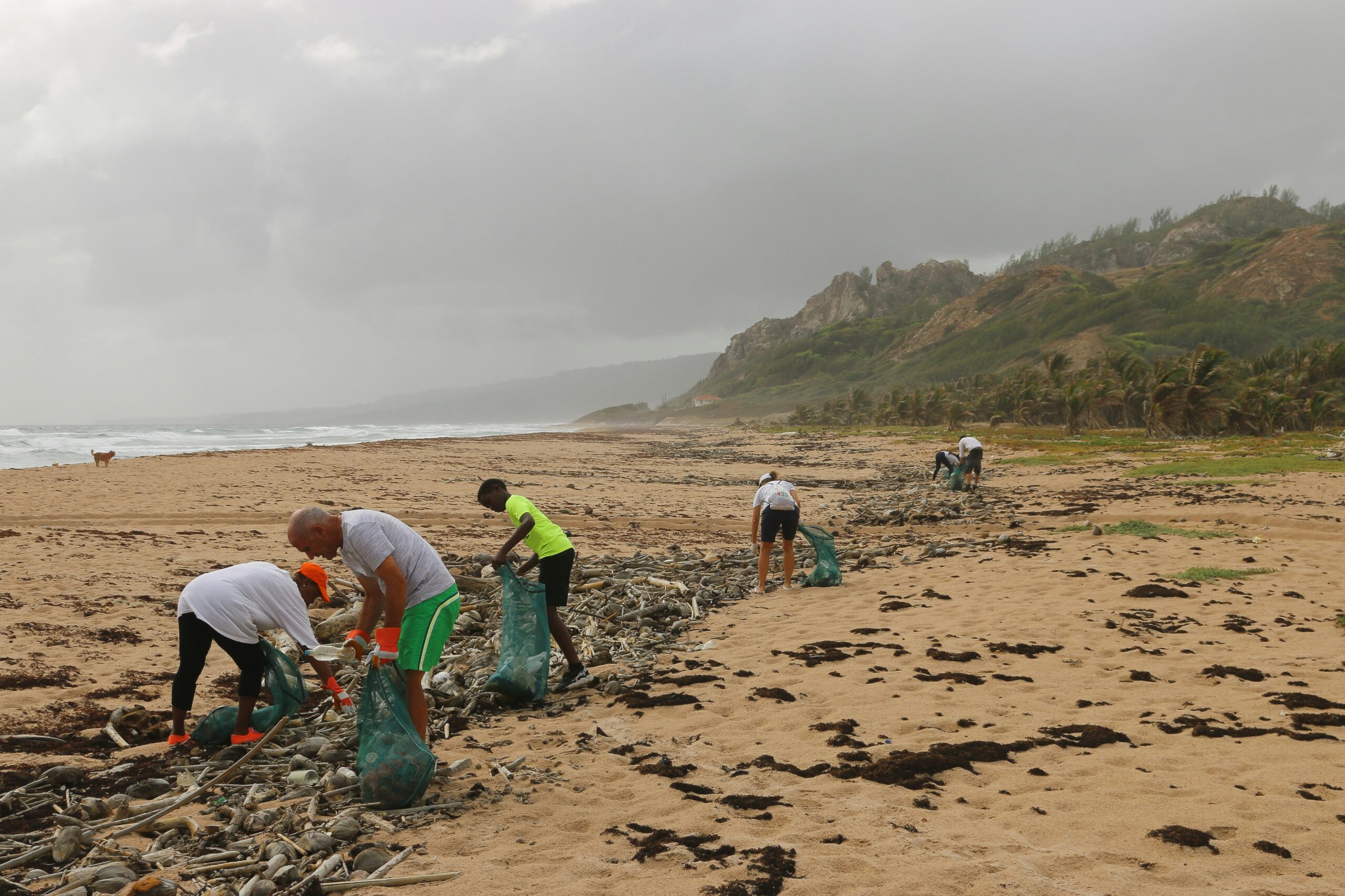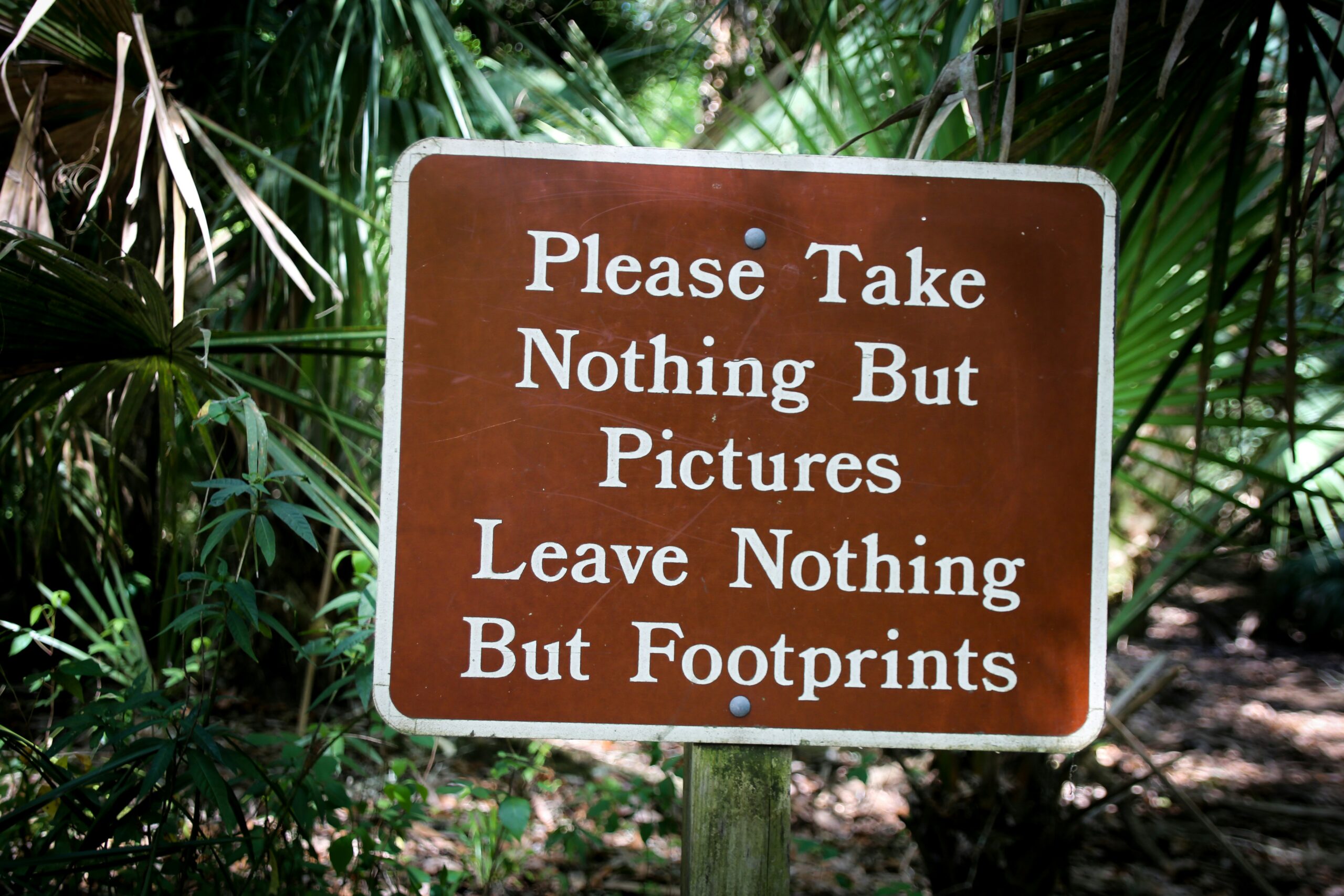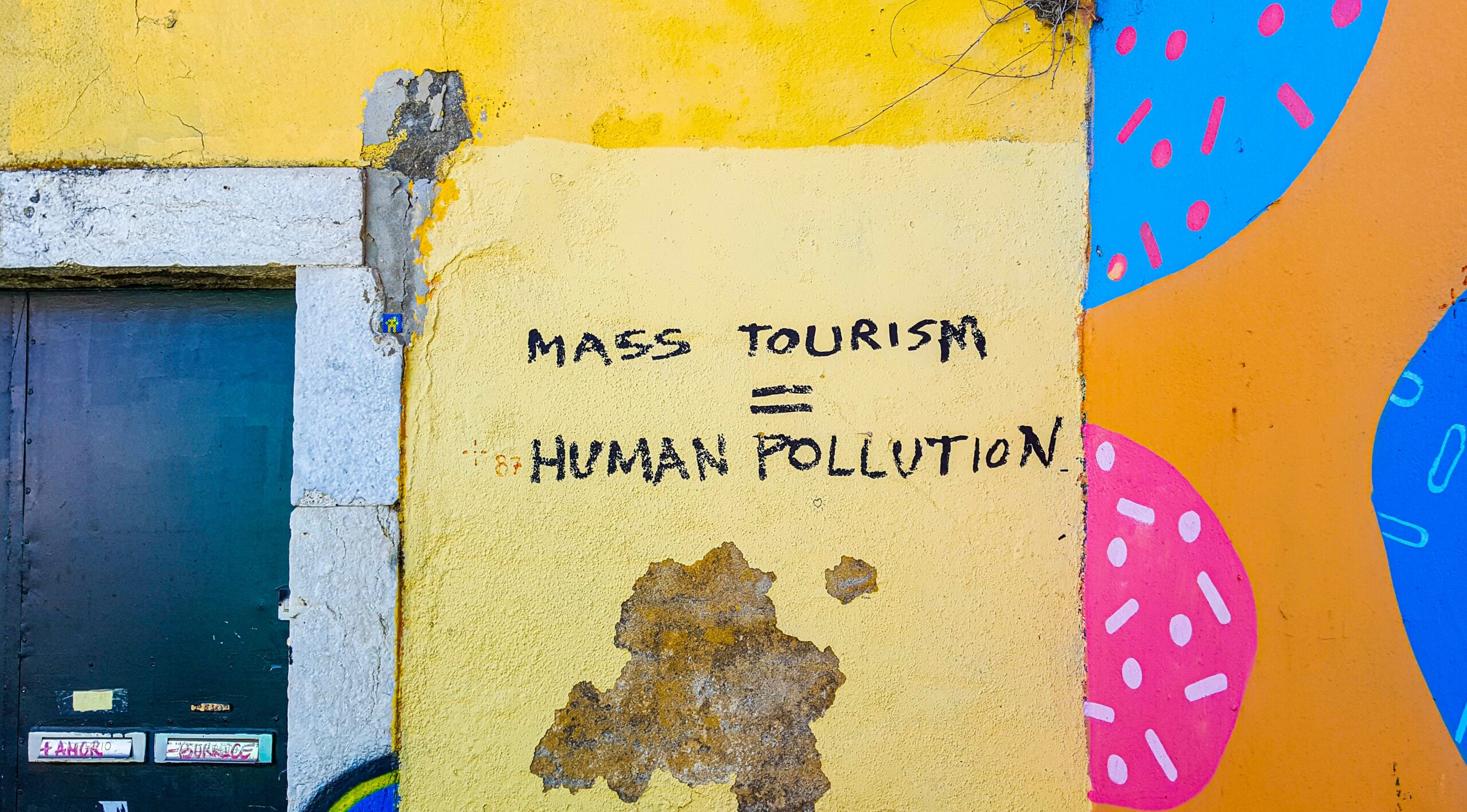Physical Address
304 North Cardinal St.
Dorchester Center, MA 02124
Physical Address
304 North Cardinal St.
Dorchester Center, MA 02124


These ethical travel tips offer practical ways to reduce harm, respect cultures, and explore more mindfully.
Want to see the world, but worried about the negative impacts of travel and tourism? Whether you’re backpacking off the beaten path or just taking a week off in the sun, these ethical travel tips will help you make the most of your next trip in all the right ways. After all, your adventure shouldn’t come at someone else’s expense.
The first of our ethical travel tips is about animal attractions. If it involves riding, petting, hugging, feeding, or posing with a wild animal, it shouldn’t be on your itinerary. These attractions involve stress, confinement, and, most of the time, outright abuse. Often, they’re even marketed as “rescue centres” or “animal sanctuaries”. Other places don’t even try to hide their animal cruelty—marine parks like SeaWorld, zoos, shows, and circuses.
The elephant you’re bathing? It was likely separated from its mother and beaten into submission. The tiger in your selfie? Drugged, declawed, or chained. The monkey in a costume? Tethered for hours and trained through fear.
Instead of paying for animal encounters, look for genuine wildlife experiences. The kind where the animals don’t even notice you’re there. National parks, responsible safari operators, or conservation projects are all better ways to appreciate animals without exploiting them.
Experiencing a place properly means immersing yourself in the local culture. It’s part of the beauty of travel! You can learn about different ways of life, customs, traditions, and beliefs.
To do this respectfully, take some time to learn what’s expected before you go. What feels normal or harmless to you may be deeply inappropriate elsewhere.
This might mean covering your shoulders in temples, removing your shoes indoors, or avoiding public displays of affection. Ethical travel tips like this aren’t about agreeing with every tradition, but showing respect as a guest.
You don’t need to be perfect, but effort is important. Locals notice, and often appreciate even the smallest gestures of cultural awareness. And no, wearing a bikini to a sacred site isn’t empowering. It’s just rude.
Nobody’s asking you to speak fluently—especially if you’re only on holiday for a week or two. But you can easily learn the simple stuff, like hello, goodbye, please and thank you. Being able to thank someone properly for food (using the equivalent of “tasty” or “delicious”) also comes in handy.
It’s one of the easiest but best ethical travel tips, and it works wherever you’re going. It shows respect. It breaks the tourist bubble. And it will almost certainly result in more genuine interactions with the locals.
Write a few phrases in your notes app or prepare for your trip with a language learning app. Most people will be happy that you tried, and many will be thrilled to teach you a few words.
Next on our list of ethical travel tips is something we’re probably all guilty of at least once.
It might seem harmless to snap a photo of someone selling fruit at the market or walking through a colourful street. But being photographed by a stranger can feel invasive.
In Kyoto, tourists have literally had to be banned from certain areas because they were chasing and harassing geishas. All in pursuit of an Insta-perfect picture.
If someone’s the focus of your photo, ask first. A nod, a gesture to your camera, or learning how to say “Can I take your picture?” in the local language is just basic human decency. And if the answer is no, don’t take it personally. Just move on.
People aren’t props. If it wouldn’t feel okay back home, it probably isn’t okay abroad.

A lot of travel activities are designed to take—your money, your attention, your photos—but offer little in return to the people or places involved. So, one of the best ethical travel tips is to choose activities that give back.
Instead of booking the same overcrowded tours everyone else is on, look for experiences that actually benefit the local community. Be careful, diligent, and cautious. Do you research. There’s a lot of welfare washing out there, and highly unethical practices posing as ethical. Here’s a table to show the difference between unethical tourist activities alongside alternative ethical travel tips.
| Unethical tourism activity | Why is it unethical? | More ethical alternatives |
| Riding or bathing elephants | Involves violent training, unnatural human interaction, and captivity | Observe elephants in the wild with an ethical local guide or visiting an approved sanctuary without direct human interaction |
| Riding camels, donkeys, horses, other animals, or vehicles pulled by animals | Involves forced labour and typically overwork, neglect, and poor treatment | Never partake in animal rides; walk, cycle, or take local transport instead |
| Swimming with captive dolphins | Captivity causes psychological distress and shortens lifespan | Visit protected marine reserves or areas dolphins live freely |
| Visiting zoos or animal parks | Animals are confined, often in poor conditions, often resulting in psychological and physcial issues | Visit accredited rescue centers and sancturies only |
| Taking boat tours that feed or chase turtles and dolphins | Disrupts natural behaviour, stresses animals, and leads to injury | Join slow, no-feed marine tours with strict wildlife codes |
| Supporting roadside “petting zoos” or monkey shows | Involves abuse, tethering, and forced performances | Support sanctuaries, shelters, and rescue organisations |
| Joining “tiger temple” or big cat selfie experiences | Involves sedation, abuse, and exploitation for photos | Visit NGOs focused on protecting big cats in the wild |
| Going on “slum tours” or orphanage visits | Exploits vulnerable people for voyeuristic tourism | Support community-led projects or ethical volunteering |
| Participating in pub crawls or party tours | Encourages disrespectful behaviour and adds to local strain | Take a cultural walking tour or food tasting with a local guide |
| Taking generic hotel-run cooking classes or always eating at major Western chain restaurants | Often staged and commercial, with little local benefit, pushes local restaurants out of business, dilutes culture | Join a class hosted by a women’s co-op or community group |
| Leaving rubbish on beaches or trails | Harms wildlife, spoils nature, and spreads disease | Take part in a beach cleanup |
| Visiting pet cafés with exotic animals | Exotic animals are often taken from the wild and are exploited for entertainment and profit | Volunteer at an animal shelter or rescue centre |
Look for activities that are more meaningful, more memorable, and more ethically grounded. You’ll learn something real, and leave something good behind.
If you care about ethical travel, what you eat matters. (This is one of our ethical travel tips that translates to daily life, too.)
Animal agriculture is one of the biggest drivers of climate change, deforestation, ocean dead zones, and biodiversity loss. Not to mention animal suffering on an unimaginable scale.
Eating plant-based is a refusal to contribute to an industry built on harm. And while it might take a bit more effort in some places, it’s getting easier all the time, especially if you do a little research in advance.
Use apps like HappyCow, learn how to ask for vegan options in the local language, and embrace plant-based staples already rooted in local cuisine. You’re not missing out by skipping the animal products. You’re just making a better choice.
That “handmade” magnet in the tourist shop? It was probably mass-produced in a factory, just like the sarong, the wooden elephant, and the towers of keyrings.
But it’s not just about avoiding cheap tat. Many so-called authentic souvenirs come from animals or sensitive ecosystems. This includes things like sea sponges, coral jewellery, turtle shells, animal skin, feathers, or decorative shells. These may be sold as traditional or natural, but that doesn’t make them ethical. In reality, they’re far from it.
If you want to support the local economy, remember this important addition to our ethical travel tips. Skip the souvenir stalls with fluorescent lights and plastic bags. Instead, look for artisans, cooperatives, and community-owned shops. Ask where something was made. Ask who made it. If nobody can tell you, it probably wasn’t made ethically.
Accommodation might be the biggest ethical blind spot in travel. It’s easy to book through a platform and call it a day. But where you stay, and who profits from it, makes a real difference.
Many hotels and short-term rentals extract local resources without giving much back. In many places, Airbnb-style listings have pushed locals out of their own neighbourhoods. Large hotel chains often underpay staff, greenwash their marketing, and funnel profits offshore.
Look for locally owned guesthouses, co-ops, homestays, eco-lodges, or social enterprises. Better yet, book direct when you can. This is another one of our ethical travel tips that saves money and improves your experience! Your money goes further, and you’ll probably get a more authentic stay. You’ll probably find it easier to connect with locals, too, which can lead to some of the most memorable and meaningful experiences of your trip.
Most of our ethical travel tips are about the destination, but let’s focus on transport for a minute. Flying is often the most carbon-intensive part of any trip. And while it’s not always avoidable, it’s also not always necessary.
If you’re strapped for cash but still looking for ethical travel tips, this even saves you money! Trains, buses, shared taxis, ferries, bikes, cars, your own two feet—alternative modes of transport slow you down in the best way. It’s usually cheaper, almost always more scenic, and far better for the planet than domestic or regional flights.
Sometimes, the journey is just as important as the destination. At least, “getting there” seems to be a source of the best stories, and a time where you meet the most fascinating people.

Cruises are bad. Catastrophically bad. One large ship can emit more sulphur dioxide than every car in Europe combined. These floating cities burn through heavy fuel oil, dump waste into the sea, and overwhelm small ports with thousands of passengers who rarely spend money beyond the dock.
It’s hard to provide ethical travel tips for going on a cruise. The simple answer is don’t go. If you love the coast, travel slowly through it. Ferries, trains, and small locally owned boats are all better options for the planet and for the people who live there.
Ethical travel tips often have a sustainbility angle, as does this one.
Single-use plastic is still the default in many parts of the world, especially when it comes to water. If you’re relying on bottled water everywhere you go, it adds up fast. Financially and environmentally.
A filter bottle or UV steriliser lets you drink tap water safely, without adding to the pile of plastic waste that often ends up in landfills or the sea. It’s a simple switch that makes a real difference. Plus, it can save you money in the long run.
While you’re at it, throw a reusable cup and cutlery set in your bag. You’ll be amazed how often they come in handy.

Number 12 of our ethical travel tips is a hard and fast rule. Take your rubbish with you. Yes, even food waste. All of it.
It’s easy to assume a banana peel or a paper tissue will just “break down”. That doesn’t make it harmless. Food waste attracts animals, introduces non-native species, and disrupts fragile ecosystems. In some environments, even biodegradable waste can take years to disappear. That includes:
Bring a small bag for your waste, pack it up, and take it with you. It’s not glamorous, but it is respectful.
If you’re heading into the sea, the same principle applies. Don’t stand on coral, touch marine life, or pocket “souvenirs” from the reef or beach. Even small interactions can cause lasting damage. Choose a reef-safe sunscreen that doesn’t contain oxybenzone or octinoxate. Both are toxic to coral.
And when you see trash, if you can, pick it up and add it to your bag of rubbish. We should all aim to take at least 10 (additional) pieces of trash from the beach every time we visit. Ethical travel tips are about preserving and respecting nature.
This is the first of our digital ethical travel tips, but it’s no less important than the others. Not everything you see needs to be shared online. And even when you do share it, not everything needs an exact location tag.
Geotagging remote beaches, waterfalls, hiking trails, or wildlife spots might seem harmless. But it can lead to sudden surges in tourism, overcrowding, litter, and environmental damage. Some places simply aren’t equipped to handle going viral.
Take the photo. Share the moment. Just keep the location vague if it’s somewhere small, sacred, or sensitive. Protecting a place sometimes means keeping it quiet.

You don’t need to cross three borders in seven days for a trip to feel worthwhile. One of the most game-changing ethical travel tips is this: slow down and stick to one place for longer. It’s often more rewarding than rushing through a checklist of sights.
You’ll notice more. Spend more with local businesses. Waste less time, money, energy, and fuel on transport. And you’re far less likely to burn out halfway through your holiday.
Ethical travel tips aren’t about doing more. It’s about doing it better. Sometimes, that means choosing depth over distance.
Ethical travel tips might help you abroad, but what about nearby? Travel doesn’t have to mean planes, passports, and faraway places. Sometimes the most ethical option is staying put and exploring what’s already around you.
Visit a nearby town by train. Go hiking in your local hills. Spend a weekend learning something new, or supporting a local project you’ve always ignored. No flight, fewer emissions, no language barrier. And often, less stress.
Staycations don’t mean limiting yourself. They’re about expanding your idea of what travel can look like. How much of your own country have you really explored?
These ethical travel tips are about reshaping how we see travel altogether. They present real opportunities to make a difference. You can leave behind a positive impact on local communities, experience deeper, more meaningful interactions, and even make lifelong friendships. Following these ethical travel tips also opens up more authentic, culturally immersive experiences. Plus, you’re protecting local environments and being part of the solution, not the problem. These ethical travel tips can turn a basic vacation into a rich, rewarding trip you’ll never forget.
There’s more than one way to travel well. You can eat locally, skip the animal shows, take your rubbish with you, and choose slower ways to move. These ethical travel tips offer small shifts with a real impact for the places you visit, and the people and animals who call them home.